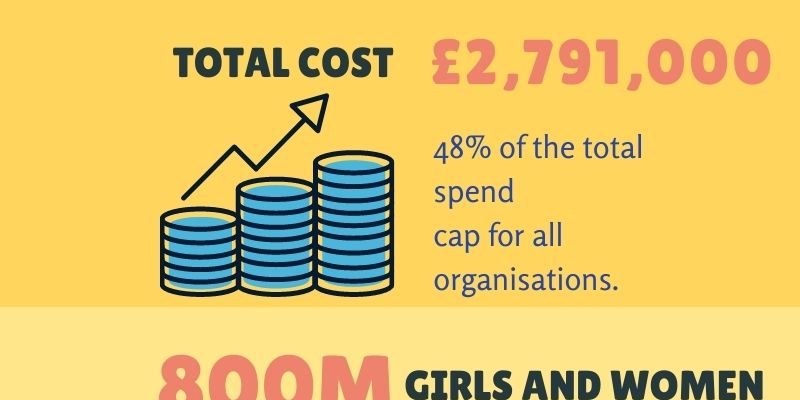More than three quarters of state secondary schools and colleges in England have accessed period products from the Department for Education’s free scheme, new government figures have revealed.
The scheme came into force January 2020 and lasted until the end of December.
It aimed to make period products freely accessible for anyone who needs them.
This includes students who can’t afford them or who have just begun their period unexpectedly.
New data shows 68% of secondary schools and 80% of colleges ordered eco-friendly products.
In September 2020, less than 40% of schools signed up to the scheme and placed orders, according to redboxproject.
Although, for organisations like Hey Girls the scheme seems to have made good progress.
Hey Girls is a buy-one-give-one period product national social enterprise, fighting to end period poverty.
Amy Briggs, Senior Marketing Manager, said: “It’s obviously good news, access to period products is a right and not a privilege. However, whilst providing products at secondary school level is a great start, there are many people who may miss out of free product if they are out of the education system, the problem does not just extend to young people.”
According to a survey revealed by PLAN in May last year 3 in 10 girls aged 18-21 struggled to access or afford sanitary wear.
“With schools being closed at the moment, access to products, even if they are free is very difficult,” Amy added.
Of all the orders pads made up for two-thirds (66%) of all the products while tampons accounted for most of the rest – 32%.
The number of orders being placed varied throughout the year with an increase in June when the schools were reopened and November.
The total cost of ordering the products amounted to 48% of the total spend cap for all organisations.
Minister Vicky Ford advised that all schools and colleges should access the products.
This makes it the quickest way to make sure they are available to everyone who needs them.
The programme delivered by phs Direct and part of phs Group is designed so that schools can order what they need and are given the option to order environmentally friendly or reusable products. Schools are not charged for the products or for delivery.
This is part of government’s drive to end period poverty, support the disadvantaged people in the additional challenge they face and tackle inequality.
With nearly 800 million women and girls menstruating daily period poverty seems like an issue that needs more focus. An estimated 49% of girls have missed a day of school because of their periods.
The scheme was and continues to be open throughout the pandemic. It has been confirmed that it will also continue throughout this year as well. For more information click here.


 BBC’s Lockdown Learning aims to benefit homeschooling children
BBC’s Lockdown Learning aims to benefit homeschooling children